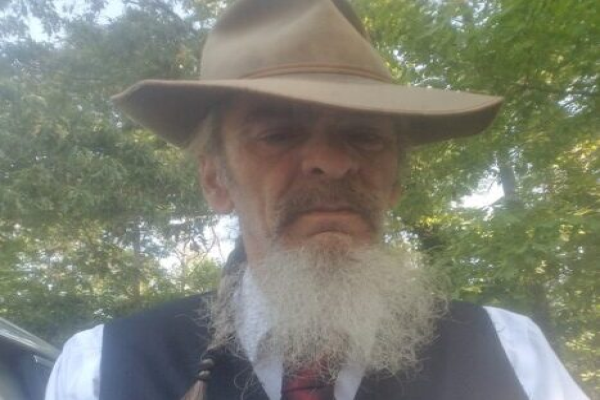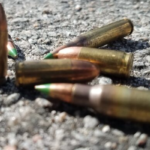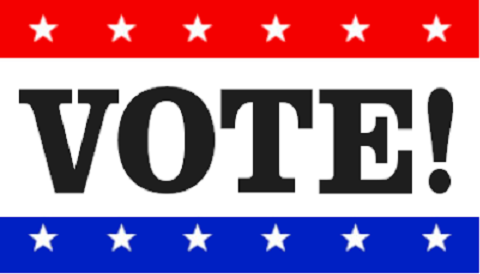In case you hadn’t noticed, it’s a big election year.
The ads have gotten nastier in recent weeks, as early voting kicked in and Nov. 5 looms. Although I am a traditionalist, and enjoy the rituals of Election Day, I’d planned to have filled in my ballot, checked my choices, and slipped it into a scanner by the time you read these words. There’s been entirely too many shenanigans in recent years for me to feel comfortable taking a chance on Election Day. Between the (sometimes justified) paranoia of social media and the pandering of so much of the press, I want to be doggone sure my vote is counted.
So Tuesday morning, I’ll put my ballot into the locked box, check the state board of elections website to make sure it doesn’t disappear, and wait to see if polling places in the “right” precincts across the state and nation will be kept open later, or which states lose or add ballots, or which machines change votes, either by design or error.
I do not trust voting machines; call me a relic of another time (I’ll thank you) but as a little kid I spent many a night asleep under a table in a board of elections or a newspaper office while my folks collected the data from handwritten tally sheets and chalkboards, then called said data in via telephone to their editors. I remember the pride of standing in a voting booth with my mother or my father, knowing that my parents were part of something great, and someday, I too would get the chance to choose who would lead our community, state and nation. It was awe-inspiring.
We often didn’t leave on Election Nights until 3 a.m. or even later; after I started working, Papa and I would sometimes stop for breakfast on the way home from the county board of elections where we were working that particular night. I remember once or twice after I was off on my own where I saw the sunrise because a precinct was late, someone had filed an official protest or some other drama was unveiled.
But back then, we dealt with paper ballots, filled out by hand and deposited in a locked box. Contrary to what some folks claim nowadays, there was less skullduggery back then – although there was plenty.
Voters used actual paper ballots, pieces of paper marked by hand, permanently recording the choices of an American citizen. They were all cast by mail (usually for servicemen and their families overseas) or in person, on one day. They were all then delivered in locked boxes to the board of elections, usually within an hour or so of the polls closing.
There they were counted, by hand, on Election Night, and recorded.
I must repeat: all of them were counted in one night, save a few provisionals that had to be reviewed on canvass day, when the elections were certified.
It seems impossible now. It is inexplicable why, with all our modern technology, it might take days for all ballots to be read. That just opens up the door for all kinds of fraud.
I have told the story too many times of a local political leader in another part pf the state, who shall remain nameless. He was famous for sitting in a back corner of the elections office, chewing a cigar, snapbrim hat barely shading his eyes from the single lightbulb over “his” desk where he had his own telephone line, paid for by the taxpayers, of course.
Before a massive party shift in that particular county, the gentleman would get his own slip of paper with the results so far for the evening. There were always one or two precincts that waited until the last moment, and they would not be delivered until he called them and gave them his blessing. Somehow, those precincts always carried just enough votes to deliver the more hotly contested seats to the “right” party.
Years later, it was confirmed that there were indeed spare ballots being filled out and illegally, fraudulently deposited in the ballot boxes in those precincts. When another party gained power, the county became truly bipartisan, and the practice drifted into legend.
There have always been questions about ballot fraud, which is why we need to have elections officials who can be utterly trusted. There will always be disagreements, of course, and occasional partisan squabbles, but on the local level, 95 percent of the folks I know in the elections business are more serious about their jobs than the folks whose names are on the ballots are about the people’s business they wish to manage. Once the politics get to the state level, I can’t help but smell chicanery, even if it is purely cynicism that drives my skepticism.
There have been efforts through the years to keep fraud out of the process, but all they seem to do is add to the bureaucracy and drag out the final word, thus ironically opening the door for the possibility of fraud. We have enacted some common sense rules in recent years in North Carolina, but predictably, the opponents claim that the rules are just in place to intimidate minorities, or keep others from voting. I find it interesting that the critics focus on race, as though one side or the other can automatically and unequivocally count all those votes as their own based on skin color.
For a few years there were the punch machines, the ones that gave us the infamous “hanging chads” seized upon by lawyers and cried over by the eventual losers. Then came the fully automatic machines, which were a complete mess. Now we use a hybrid paper ballot system in North Carolina. Each ballot has a specific tag showing the voter was checked and approved, and only that person cast his or her ballot – but those paper ballots are entrusted to and counted by machines, which can break, malfunction or be hacked by a motivated person with excellent computer skills. And sometimes it still might take a couple days to count all those ballots, even with machines.
In the late 1870s, in one of the first elections when Reconstruction was in full force, after former Confederate soldiers had been pardoned and their rights restored, voter turnouts were in the 70 to 90 percent range in our state. In one particular election, people rode chartered riverboats up the Cape Fear River to polls. At least one family I read about camped overnight on their way to vote and see the results of that vote.
True, we had far fewer people back then, but the key is that everyone who wanted to vote and had a legal right to do so voted on the one day when they could — on one single day. Election Day.
And yet turnouts were astronomical compared to many modern elections, where you can register and vote the same day for two weeks prior, or show up on Election Day and cast a provisional ballot, or get a mail-in ballot no questions asked.
All those ballots were counted in one day, too, because across America, crowds of voters were watching the entire process. Yet with all the technology, all the alleged safeguards, all the ways voting is made easier for the voter – we rarely see more than 50 percent turnout (this year being an exception), and officials across the nation are warning they might not be finished for days and days after the elections.
I stay perplexed as to why, even with the large numbers of votes being cast, even with all the technology that’s supposed to make things safer and easier – why in Tophet can’t ballots be counted and announced? Is it because some electeds want to be sure the modern equivalent of the man with the cigar can call in a number of extra ballots if they’re needed for the “right” results?
Yes, even if it is technically early in the election, even if I don’t trust the machines, I will proudly vote this year (and happily show an ID to prove that I am who I say I am). Yes, I’ll put my ballot in the scanner. Yes, I will use a computer to make sure my ballot doesn’t disappear. And yes, I’ll wait up half the night on final results across the state and nation, since this election is even more consequential than most.
I’ll also remember a time when Americans were proud to vote, they would go to the trouble to do so on one day, and they could wholeheartedly trust a system that bore the responsibility of preserving liberty and justice for all.






